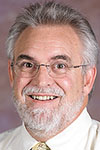Jeb Bladine: Americans have short memories
I thought I knew a lot about the 2007-09 recession — housing costs driven up by fraudulent loans, Wall Street greed and a financial crash triggered by reckless derivatives of mortgage-backed bonds.
Then, for no particular reason last week, I watched “The Big Short.” Michael Lewis wrote the book in 2011, but I skipped it. I was looking for entertaining confirmation of what I already knew; instead, I found a movie that explained complex financial details with unexpected clarity.
Monday, two days after watching the movie, I was reading about the last big-bank settlements. Goldman Sachs agreed to pay $5 billion in civil penalties and relief to consumers.
Before that, Bank of America and JPMorgan Chase were assessed penalties of $16.6 billion and $13 billion, respectively. Morgan Stanley paid $3.2 billion and Wells Fargo $1.2 billion. Altogether, the big banks were hit with more than $40 billion in settlement fines.
With ruthless precision, “The Big Short” portrays the monumental greed that fueled both ends of the runaway mortgage-banking industry.
First, profit-hungry private lenders sold millions of sub-prime mortgages to people who didn’t qualify for conventional mortgages. Ill-advised borrowers accepted often dishonest loans, then walked away when monthly payments skyrocketed from adjustable interest rates.
That phenomenon guaranteed a financial upheaval. But market disruption was turned into a global financial crisis when the major investment banks took greed to new levels, even in America.
For decades, Wall Street had sold low-risk securities backed by thousands of bundled individual mortgages. As money managers merged sub-prime mortgages into the bonds, those investments were destined to default.
Big banks doubled down. They rebundled already toxic securities into complex “collateralized debt obligations,” and sold those ill-fated instruments to unsuspecting investors.
While bankers cavorted and regulators slept, a few market traders recognized the impending financial catastrophe. They persuaded greedy banks to create “credit default swaps” as a vehicle for high-stakes bets that the mortgage market would fail. The banks crumbled, and those financial prophets were royally rewarded when the securities collapsed, but few were celebrating the loss of trillions of dollars and millions of jobs and homes.
It’s enough to make you want to vote for Bernie Sanders. Well, not quite; but you don’t have to look beyond the 2016 presidential election to see how simple it is to divert Americans’ attention from reasonable solutions to economic problems.
As I was reminded by “The Big Short,” we Americans have short memories.
Jeb Bladine can be reached at jbladine@newsregister.com or 503-687-1223.










Comments